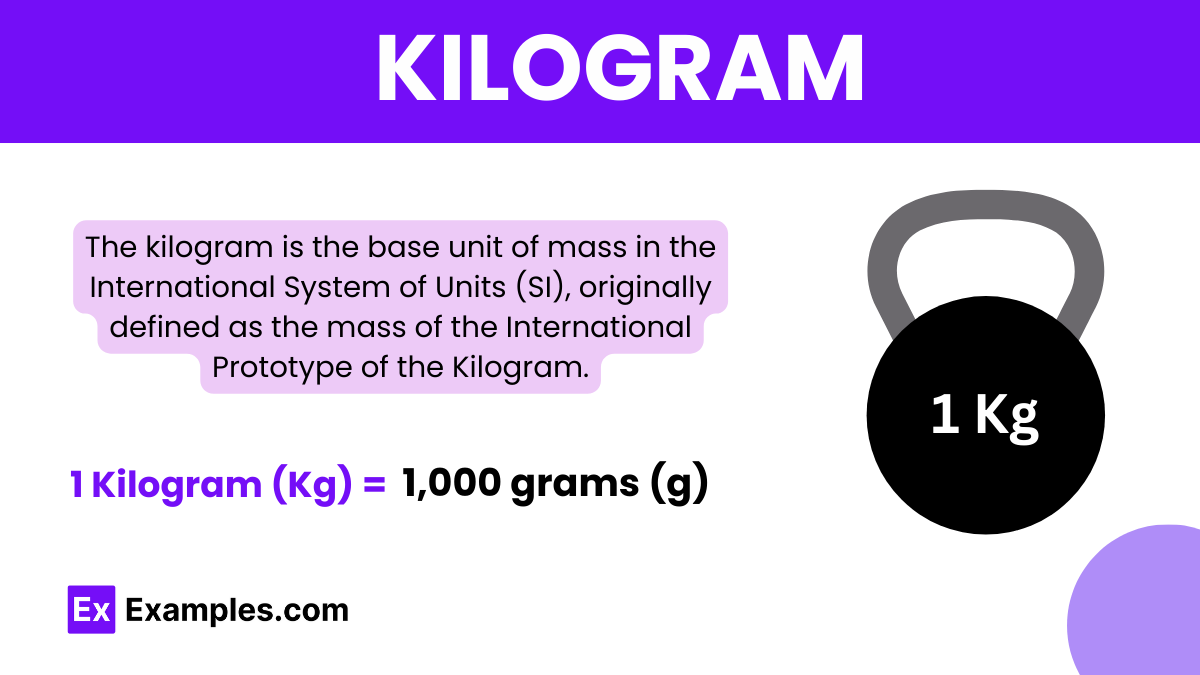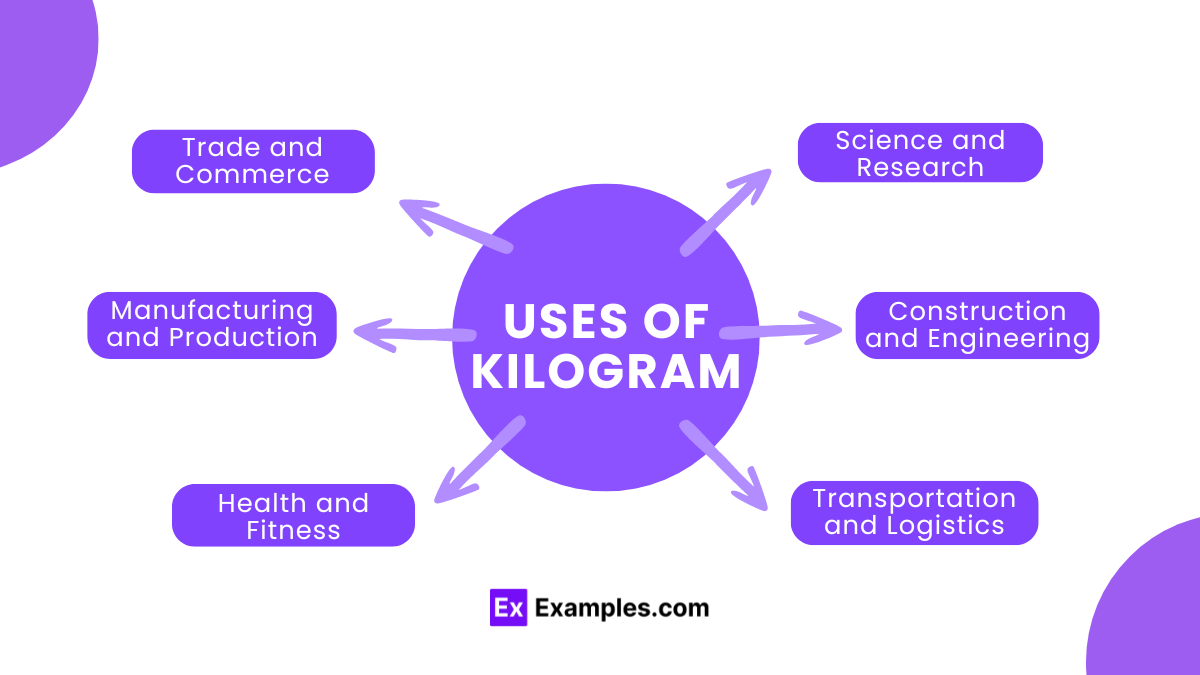What is the weight of 10 kilograms in milligrams?
10,000 milligrams
100,000 milligrams
1,000,000 milligrams
10,000,000 milligrams


1 Kilogram (Kg) = 1,000 grams (g)
| Unit | Symbol | Prefix | Value |
|---|---|---|---|
| Milligram | mg | milli- | 1 mg = 10⁻⁶ kg |
| Microgram | µg | micro- | 1 µg = 10⁻⁹ kg |
| Nanogram | ng | nano- | 1 ng = 10⁻¹² kg |
| Picogram | pg | pico- | 1 pg = 10⁻¹⁵ kg |

| From/To | Conversion Factor | Example |
|---|---|---|
| Kilograms to Grams (g) | 1 kg = 1,000 g | 10 kg = 10,000 g |
| Kilograms to Milligrams (mg) | 1 kg = 1,000,000 mg | 10 kg = 10,000,000 mg |
| Kilograms to Metric Tons (metric ton) | 1 kg = 0.001 metric ton | 10 kg = 0.01 metric ton |
| Kilograms to Pounds (lbs) | 1 kg = 2.20462 lbs | 10 kg = 22.0462 lbs |
| Kilograms to Ounces (oz) | 1 kg = 35.27396 oz | 10 kg = 352.7396 oz |
| Kilograms to Stones (stones) | 1 kg = 0.157473 stones | 10 kg = 1.57473 stones |
| Kilograms to Short Tons (short tons) | 1 kg = 0.00110231 short tons | 10 kg = 0.0110231 short tons |
| Kilograms to Long Tons (long tons) | 1 kg = 0.000984207 long tons | 10 kg = 0.00984207 long tons |
| Kilograms to Metric Tonnes (metric ton) | 1 kg = 0.001 metric ton | 10 kg = 0.01 metric ton |
| Kilograms to Micrograms (μg) | 1 kg = 1,000,000 μg | 10 kg = 1,00,00,000 μg |
In baking, recipes often require precise measurements of ingredients. A common ingredient, flour, is typically measured in kilograms to ensure accuracy in large-scale production. For instance, a commercial bakery might use 10 kilograms of flour to make batches of bread. This precise measurement helps maintain consistency in the texture and taste of the final product, ensuring customer satisfaction. Additionally, in pharmaceutical manufacturing, kilograms are used to measure the quantities of active ingredients needed to produce medications. For example, a pharmaceutical company might require 50 kilograms of a particular compound to produce a batch of tablets. This precise measurement ensures that each tablet contains the correct dosage, meeting regulatory standards for safety and efficacy.
| Gram (g) | Kilogram (kg) |
|---|---|
| A metric unit of mass equal to 1/1000 of a kilogram. | A metric unit of mass equal to 1,0001,000 grams or approximately 2.20462 pounds. |
| Smaller unit of mass. | Larger unit of mass. |
| Commonly used for small items or precise measurements. | Commonly used for larger quantities or weights. |
| 1 kilogram = 1,000 grams | 1 gram = 0.001 kilograms |

In scientific research, kilograms are utilized for precise measurements in experiments, material analysis, and the calculation of physical constants, contributing to advancements in fields such as chemistry, physics, and engineering.
The kilogram serves as a fundamental unit for pricing, trading, and packaging goods worldwide, facilitating fair transactions and enabling seamless commerce across international borders.
The kilogram is crucial for quantifying everyday items, from groceries to body weight, providing a standardized metric for measurements in trade, health, and commerce.
Text prompt
Add Tone
10 Examples of Public speaking
20 Examples of Gas lighting
What is the weight of 10 kilograms in milligrams?
10,000 milligrams
100,000 milligrams
1,000,000 milligrams
10,000,000 milligrams
How many kilograms are in 4500 grams?
3.5 kilograms
4.5 kilograms
5.0 kilograms
4.0 kilograms
If an object weighs 2 kilograms, how much does it weigh in grams?
200 grams
2000 grams
500 grams
1000 grams
Convert 12 kilograms to grams.
10,000 grams
11,000 grams
12,000 grams
13,000 grams
How many kilograms are in 8000 grams?
6.5 kilograms
7.5 kilograms
8.0 kilograms
9.0 kilograms
What is the weight of 0.5 kilograms in grams?
200 grams
300 grams
400 grams
500 grams
Convert 3.25 kilograms to grams.
2000 grams
2500 grams
3000 grams
3250 grams
How many kilograms are in 6000 grams?
5.0 kilograms
5.5 kilograms
6.0 kilograms
6.5 kilograms
What is the weight of 0.75 kilograms in grams?
500 grams
600 grams
700 grams
750 grams
Convert 15 kilograms to grams.
10,000 grams
12,000 grams
15,000 grams
18,000 grams
Before you leave, take our quick quiz to enhance your learning!

